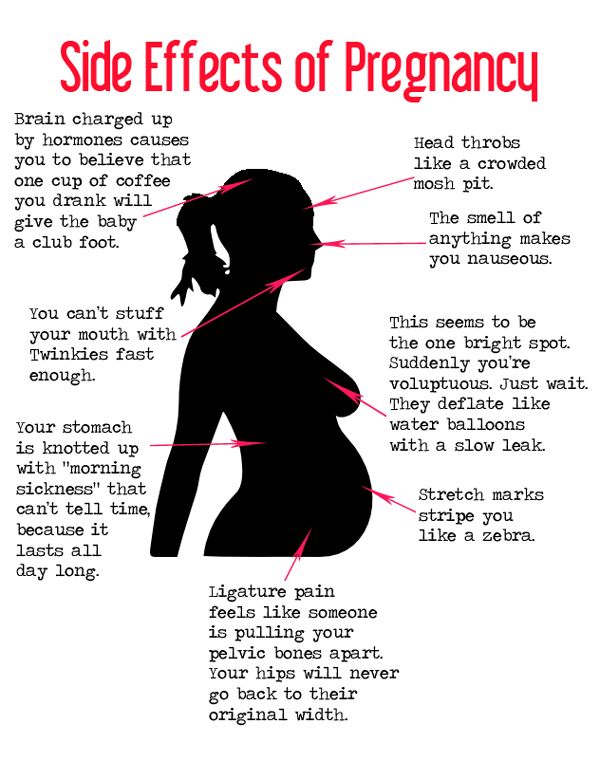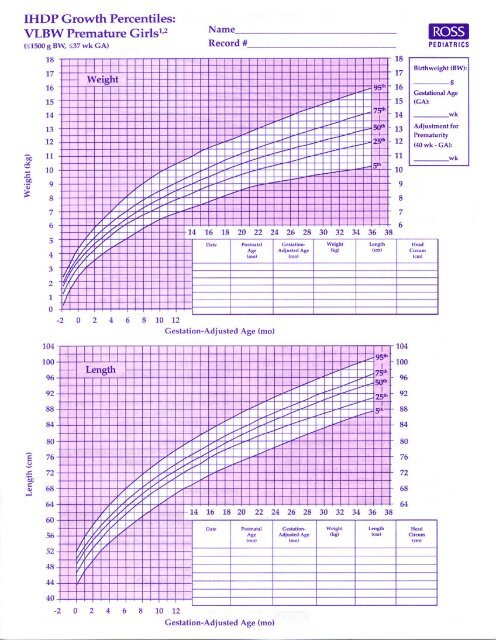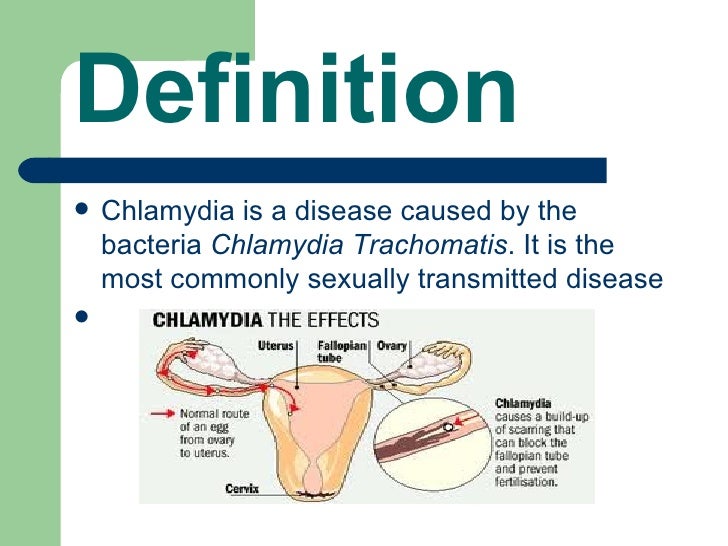How do pregnancy cravings work
Why Pregnancy Can Make You Have Weird Cravings
Gotta have pickles and ice cream? How about a juicy bacon cheeseburger, or the world’s biggest bowl of pineapple? Not all women get to fulfill their food dreams in a jar of pickles, but interesting food cravings are common when you’re expecting. So, along with changes in your body during your pregnancy, you can also expect some changes to your appetite.
Pregnancy cravings can be caused by a number of things, including hormones, a heightened sense of smell and taste, and nutritional deficiencies. Cravings typically begin during the first trimester and peak in the second trimester, but can happen anytime during pregnancy. If you find yourself reaching for something that makes your family and friends raise their eyebrows, know you’re not alone. Let’s explore some of the most common pregnancy cravings, and how to keep eating healthy during this important time.
Pickles
These salt-and-vinegar-soaked zingers are undoubtedly one of the most common food cravings for pregnant women. If you find yourself reaching for the dill pickles in the back of your fridge, it may because you have low sodium levels. Regardless of the cause, feel free to eat up. Pickles are low in calories and are an inexpensive snack to keep on hand.
Chocolate
Feeling low or depressed? Chocolate contains a naturally occurring chemical called tryptophan, which produces serotonin in your brain. Serotonin is responsible for secreting endorphins, which helps us experience positive emotion. Simply put, chocolate makes us feel happy. However, that chocolate bar is not all sunshine and roses. Chocolate is usually high in fat and calories and isn’t the best choice when consumed in large doses. Instead of eating an entire king-sized candy bar, try tossing some chocolate chips in your yogurt, or drizzling a little melted chocolate over some fresh strawberries.
Lemons
It may seem unusual but it’s common for pregnant women to crave lemons. Some women satisfy this craving by adding lemon to their water, which is a great way to stay hydrated. Some also crave eating the fruit itself. If you crave lemons like this, be sure to moderate your intake or use a straw. The juice from fresh lemons is known to erode tooth enamel, which can cause a number of uncomfortable dental problems.
Some also crave eating the fruit itself. If you crave lemons like this, be sure to moderate your intake or use a straw. The juice from fresh lemons is known to erode tooth enamel, which can cause a number of uncomfortable dental problems.
Soda
Many women drink soda to ease morning sickness. However, because soda contains large amounts of sugar, it’s not a great choice for pregnant women, especially women dealing with gestational diabetes. A healthier alternative is mineral water mixed with fruit juice or lime.
Red Meat
Red meats like beef are rich in iron and protein. Women who are experiencing iron or protein deficiencies often crave red meats to fulfill these mineral needs. Just remember, too much red meat may increase your risk of heart disease. The key to satisfying your craving for red meat without compromising your health is to choose leaner cuts. This means avoiding the fatty rib eye, and instead opting for sirloin cuts.
Spicy Food
During your pregnancy, you may feel so hot that even standing in a freezer couldn’t satisfy your inner volcano. Try eating some curry, hot wings, or red peppers. Spicy foods will make your body sweat, which will naturally bring down your body’s temperature. Our bodies trigger this on their own through cravings, or you can use this trick on purpose when you just want to cool off. If you find yourself reaching for spicy foods, just make sure they’re baked and not fried so you’re not consuming unwanted calories.
Try eating some curry, hot wings, or red peppers. Spicy foods will make your body sweat, which will naturally bring down your body’s temperature. Our bodies trigger this on their own through cravings, or you can use this trick on purpose when you just want to cool off. If you find yourself reaching for spicy foods, just make sure they’re baked and not fried so you’re not consuming unwanted calories.
Fruit
When you’re pregnant, your body is doing the best it can to make a healthy baby. Craving fruit is perfect because satisfying the craving provides your baby with vitamins and nutrients like vitamin C. Opt for fresh fruits instead of canned fruits in heavy syrup, since the canned option usually comes with a dose of sugar. If you’re struggling with gestational diabetes, talk to your doctor about which fruits are best for you. Fruits like grapefruit and berries are lower in natural sugars, which make them a great choice.
Dairy Products
Ice cream and yogurt are go-to cravings for many pregnant women. This may be due to a calcium deficiency (or just loving ice cream). Head off these cravings with calcium supplements and calcium-rich food options like cheese and milk. If you just can’t shake your craving for ice cream, try non-fat frozen yogurt with fresh fruit instead.
This may be due to a calcium deficiency (or just loving ice cream). Head off these cravings with calcium supplements and calcium-rich food options like cheese and milk. If you just can’t shake your craving for ice cream, try non-fat frozen yogurt with fresh fruit instead.
Ice and Nonfood Substances
Okay, ice isn’t technically a “food,” but it’s a legitimate craving for many pregnant women. If you’re craving ice while you’re pregnant, it could be an indication of anemia, which is most often caused by an iron deficiency. Pregnant women with anemia crave ice because it helps relieve the inflammation of the mouth and tongue (a common symptom of anemia).
Some pregnant women are surprised to find they experience a phenomenon called Pica, which is the desire to eat nonfood substances. In these cases, you may crave things like laundry starch, crayons, or dirt. These cravings may be due to an iron or zinc deficiency and satisfying these cravings may be as simple as loading up on foods rich in these minerals.
Strange food Combinations
Weird food combinations aren’t uncommon for many pregnant women. Some women crave pickles wrapped in cheese, eggplant on pizza, and other strange food combinations they wouldn’t normally eat. As long as the food choices are healthy, go for it! The cravings will only last for a short time.
Beating Pregnancy Cravings
One of the best ways to head off pregnancy cravings is to make sure you have well-balanced meals throughout the day. Eat breakfast, get regular physical activity, and make sure you have a lot of emotional support.
When cravings hit you hard, distract yourself. Go for a walk, play a game, visit a friend. If that’s just not working, you can help satisfy cravings by paying attention to what your body is telling you, and finding an alternative.
If you still find yourself hankering for ice cream, have a little. Moderation is the key to a healthy diet during pregnancy. However, it’s best to consult your healthcare provider if you’re having cravings for things like starch, dirt, or Play-Doh.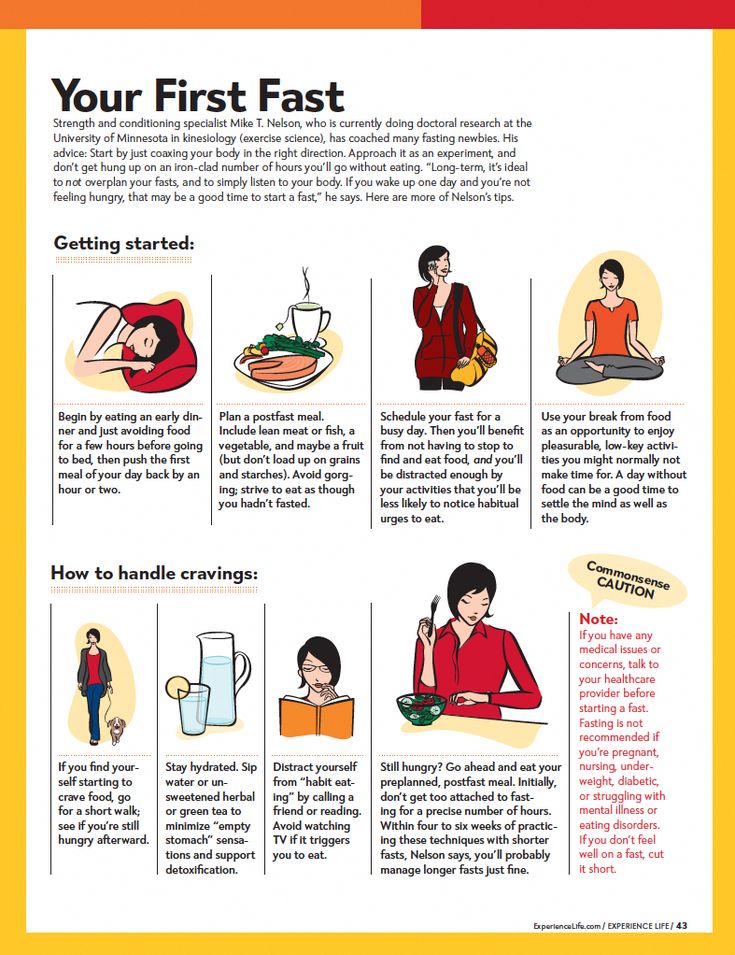 Having cravings for these non-food items could be a sign of a nutrient deficiency.
Having cravings for these non-food items could be a sign of a nutrient deficiency.
Pregnancy is a wonderful experience. Embrace the changes in your appetite, but make sure your cravings don’t compromise your or your baby’s health.
The surprising reason why pregnant women get cravings
Loading
Taste of Tomorrow | Health
(Image credit: Gety Images)
By Veronique Greenwood15th July 2020
What’s behind pregnancy cravings? Probably not what you’re thinking.
W
We’ve all heard the stories about the pregnant woman who only wants ice cream and pickles, who sends her husband out at 1am for fried chicken, who needs, in a deep, primal way, five bars of a very specific brand of chocolate. Perhaps we’ve even experienced an intense craving of this kind ourselves.
It’s often speculated that pregnancy cravings are fulfilling some nutritional need of the woman or the fetus, and there’s something alluring about the idea that they reflect an underlying biological reality.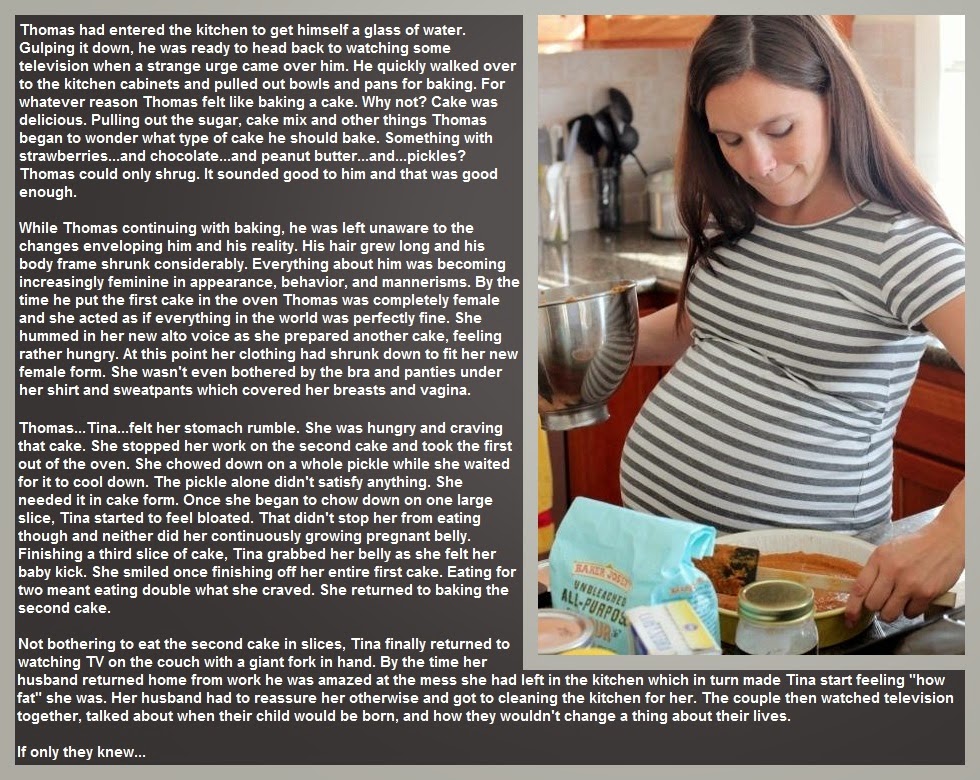 After all, it’s a confusing part of a sometimes difficult process. Gestating a human among one’s viscera is already lengthy, tiring, and uncomfortable, and if there’s a reason for the burning need to eat tacos, so much the better.
After all, it’s a confusing part of a sometimes difficult process. Gestating a human among one’s viscera is already lengthy, tiring, and uncomfortable, and if there’s a reason for the burning need to eat tacos, so much the better.
However, if you take a look at scientific research on the subject, an intriguing, rather more complex narrative emerges. Pregnancy cravings as a concept are not necessarily experienced in all cultures, researchers have found. And in those non-English-speaking cultures where women do sometimes report cravings, it’s for wildly different things than reported by women in the US and UK, for example. For instance, in Japan, when cravings are reported, the most commonly craved food was rice.
- The people who can’t stop eating dirt
- Why we want food so much it hurts
- Why you shouldn’t trust food cravings
Going farther, studies to see whether commonly craved foods provide specific nutrients helpful for pregnancy have not found that they are good sources at all.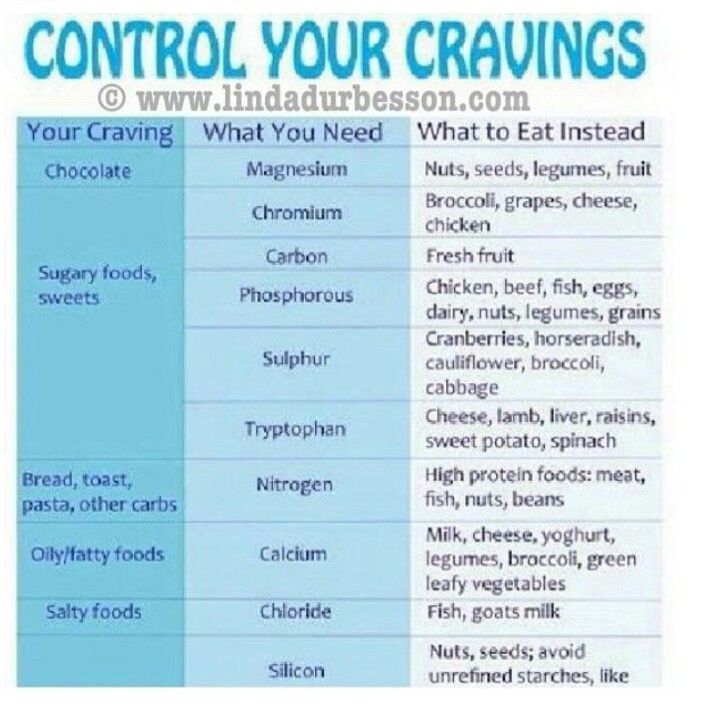 In fact, women who report cravings tend to gain more weight than is generally considered healthy during a pregnancy, which can lead to a higher rate of complications.
In fact, women who report cravings tend to gain more weight than is generally considered healthy during a pregnancy, which can lead to a higher rate of complications.
That doesn’t mean that women who do have cravings are making it all up, just that these cravings may be driven by something other than biochemical need. Looking at why people crave foods generally can put some of this information into focus, suggests Julia Hormes, a professor of psychology at State University of New York, Albany, who has studied cravings in many different settings. For instance, about 50% of women in the US report craving chocolate in the week before their period, says Hormes. Scientists have explored whether this craving is for some nutrient in chocolate important to menstruation, or whether it reflects shifting hormones.
Cravings may be psychological - or even cultural (Credit: Getty Images)
In one experiment, a psychologist asked women to open a box they’d been given and eat what was inside the next time they had that craving. Some boxes contained milk chocolate, which has all the nutrients usually found in chocolate along with a melt-in-your-mouth texture, some white chocolate, which doesn't contain cocoa solids (which give milk and dark chocolate their brown colours) but that does have the nice texture, and some cocoa pills, with the cocoa-solid nutrients but none of the chocolate-eating experience.
Some boxes contained milk chocolate, which has all the nutrients usually found in chocolate along with a melt-in-your-mouth texture, some white chocolate, which doesn't contain cocoa solids (which give milk and dark chocolate their brown colours) but that does have the nice texture, and some cocoa pills, with the cocoa-solid nutrients but none of the chocolate-eating experience.
The white chocolate was actually the most successful at sating cravings, so it couldn’t be that there was some useful nutrient or active ingredient in cocoa solids driving the desire. Other studies tracking chocolate cravings have found no connection to hormone levels. In fact, women in menopause continue to report chocolate cravings, Hormes said; they just chalk it up to some other cause. (Read more: Why you shouldn’t trust your food cravings)
What this all points to is a cultural or psychological source for cravings. Strong desire for a buttery cookie, or a chocolate bar, or fries, may start out as a simple thought and then grow little by little into an obsession that’s hard to resist.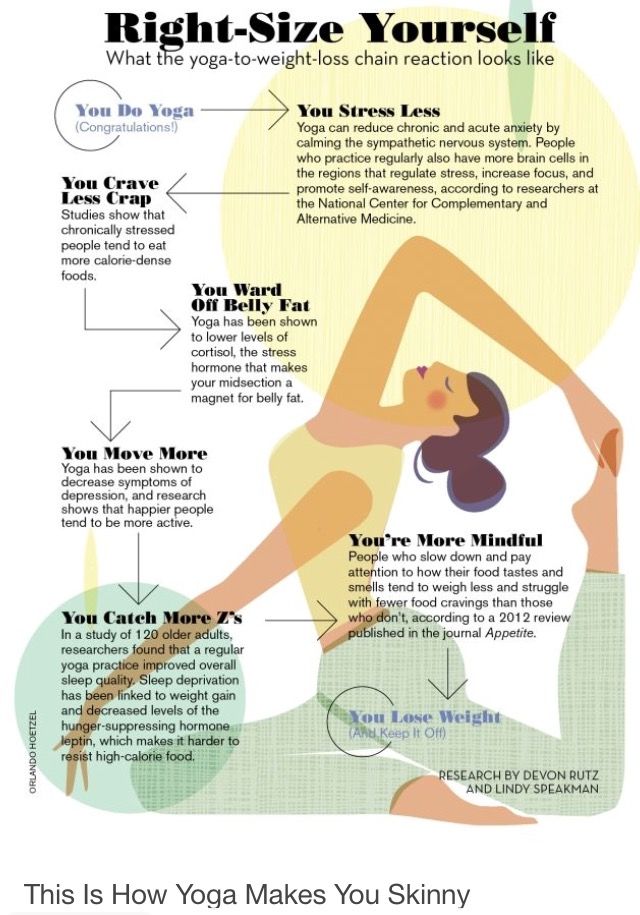 At the same time, in the United States, and to varying extents other places, the thought of highly palatable foods – a term researchers use to refer to everything from ice cream to cake to gooey macaroni cheese – comes with a strong sense of guilt.
At the same time, in the United States, and to varying extents other places, the thought of highly palatable foods – a term researchers use to refer to everything from ice cream to cake to gooey macaroni cheese – comes with a strong sense of guilt.
“There’s a certain ambivalence,” says Hormes, “It’s inherently pleasurable, but I also live in a culture that tells me I shouldn’t have this chocolate. I really want it, but I shouldn’t have it – we think that is the piece of culture that really encourages that elaborative process.”
In particular, if you’ve already been restraining yourself for quite some time – if you have it set up in your mind that you aren’t ever allowed to have such a food – it makes it very difficult to control yourself once you do have it. So after having a piece of cake, instead of being satisfied and moving on, you eat three more. Additionally, women may restrict certain foods when they are pregnant, either aiming for a healthier diet or following doctors’ recommendations regarding sushi, deli meat, and other foods.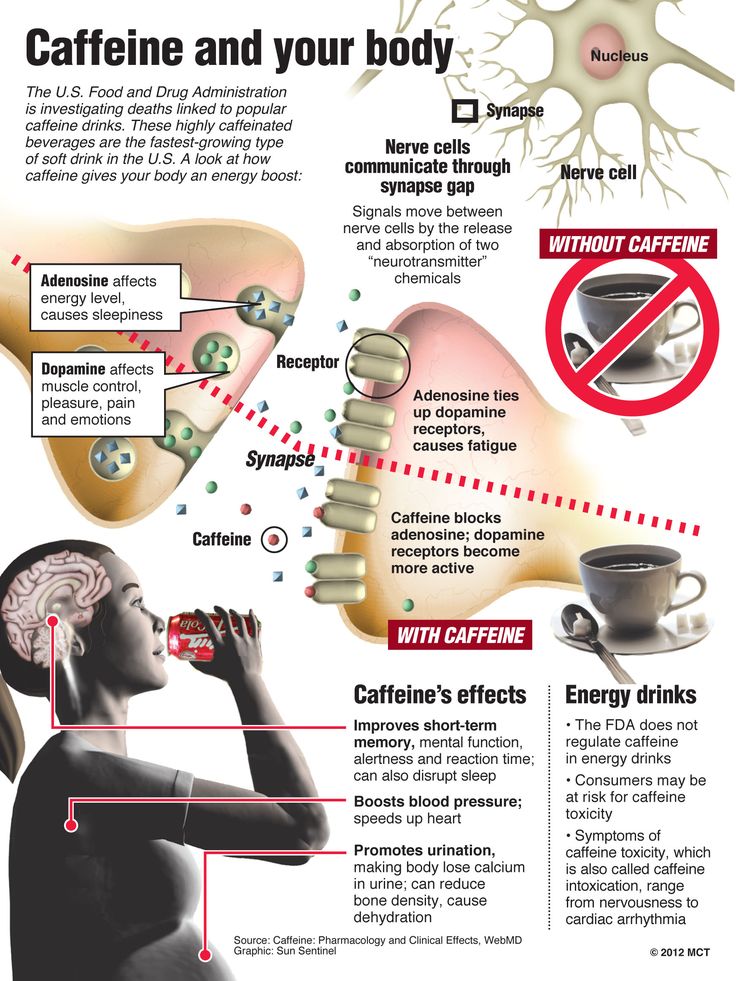
Eating a few squares of rich chocolate regularly might kill the cravings to gorge on a whole bar (Credit: Getty Images)
All this together leads to a situation, at least in some parts of the world, where cravings are more likely to arise and to be difficult to reign in, perhaps leading to excess weight gain.
Pregnancy may also be seen as a time when caving can’t be judged as harshly. “This culture also seems to identity certain times and excuses where it’s more okay for women to eat things they are supposed to stay away from,” says Hormes. “PMS and pregnancy are socially sanctioned occasions when women can give in.”
Interrupting the ruminations that lead to a serious craving can help stop escalation from the thought of a food to a binge, says Hormes. One way is to use distractions – there have been studies using visual distractions and also scents – and another is to draw on mindfulness and meditation to acknowledge the desire and let it pass. She also recommends, if you’re craving chocolate, get some really quality stuff, have a couple squares every day, and move on with your life, a procedure that may help remove some of its totemic significance.
When it comes to pregnancy cravings, there may be an additional cultural factor: pregnancy is demanding, and it can be hard to go through it without help. One study of rural Tanzanian women who reported desires for meat, fish, grains, fruits and vegetables noted that providing the desired food was a sign of social support by the husband and his family.
Indeed, 1am fried chicken requires commitment from the person sent to bring back the goodies, so it’s a reassurance that this person is there for the craver. While buffalo wings are intensely pleasurable on their own, the fact that someone you love brought them to you has value beyond the calorific.
--
Join one million Future fans by liking us on Facebook, or follow us on Twitter or Instagram.
If you liked this story, sign up for the weekly bbc.com features newsletter, called “The Essential List”. A handpicked selection of stories from BBC Future, Culture, Worklife, and Travel, delivered to your inbox every Friday.
A handpicked selection of stories from BBC Future, Culture, Worklife, and Travel, delivered to your inbox every Friday.
Physiological changes in the body during pregnancy
From the very first days of pregnancy, a woman's body undergoes profound transformations. These transformations are the result of the coordinated work of almost all body systems, as well as the result of the interaction of the mother's body with the child's body. During pregnancy, many internal organs undergo significant restructuring. These changes are adaptive in nature, and, in most cases, are short-lived and completely disappear after childbirth. Consider the changes in the basic systems of the vital activity of a woman's body during pregnancy.
The respiratory system during pregnancy works hard. The respiratory rate increases. This is due to an increase in the need of the mother and fetus for oxygen, as well as in the limitation of the respiratory movements of the diaphragm due to an increase in the size of the uterus, which occupies a significant space of the abdominal cavity.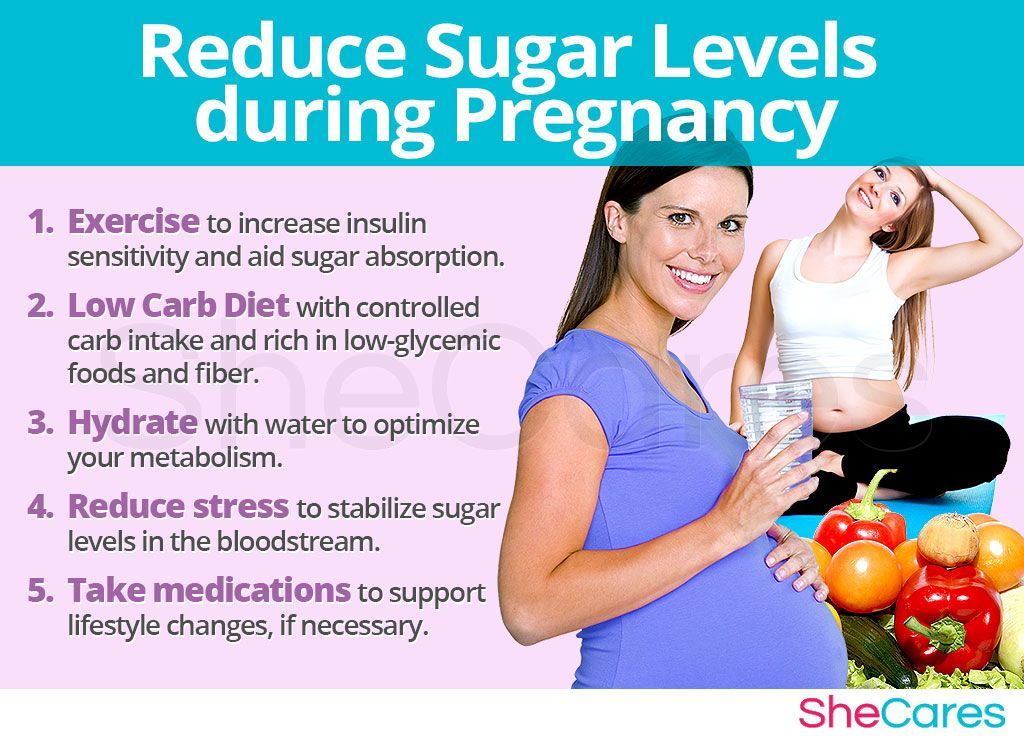
The mother's circulatory system during pregnancy has to pump more blood to ensure an adequate supply of nutrients and oxygen to the fetus. In this regard, during pregnancy, the thickness and strength of the heart muscles increase, the pulse and the amount of blood pumped by the heart in one minute increase. In addition, the volume of circulating blood increases. In some cases, blood pressure increases. The tone of blood vessels during pregnancy decreases, which creates favorable conditions for increased supply of tissues with nutrients and oxygen. During pregnancy, the network of vessels of the uterus, vagina, and mammary glands decreases sharply. On the external genitalia, in the vagina, lower extremities, there is often an expansion of the veins, sometimes the formation of varicose veins. Heart rate decreases in the second half of pregnancy. It is generally accepted that the rise in blood pressure over 120-130 and a decrease to 100 mm Hg. signal the occurrence of pregnancy complications.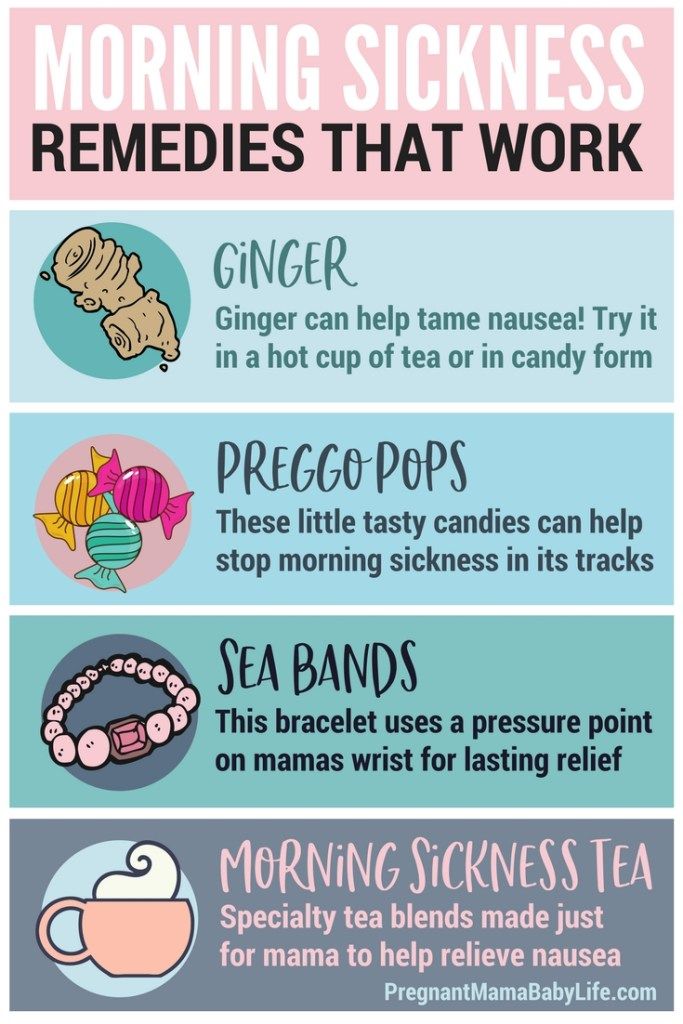 But it is important to have data on the initial level of blood pressure.
But it is important to have data on the initial level of blood pressure.
And changes in the blood system. During pregnancy, blood formation increases, the number of red blood cells, hemoglobin, plasma and bcc increases. BCC by the end of pregnancy increases by 30-40%, and erythrocytes by 15-20%. Many healthy pregnant women have a slight leukocytosis. ESR during pregnancy increases to 30-40. Changes occur in the coagulation system that contribute to hemostasis and prevent significant blood loss during childbirth or placental abruption and in the early postpartum period.
Kidneys work hard during pregnancy. They secrete decay products of substances from the body of the mother and fetus (the waste products of the fetus pass through the placenta into the mother's blood).
Changes in the digestive system are represented by increased appetite (in most cases), cravings for salty and sour foods. In some cases, there is an aversion to certain foods or dishes that were well tolerated before the onset of pregnancy.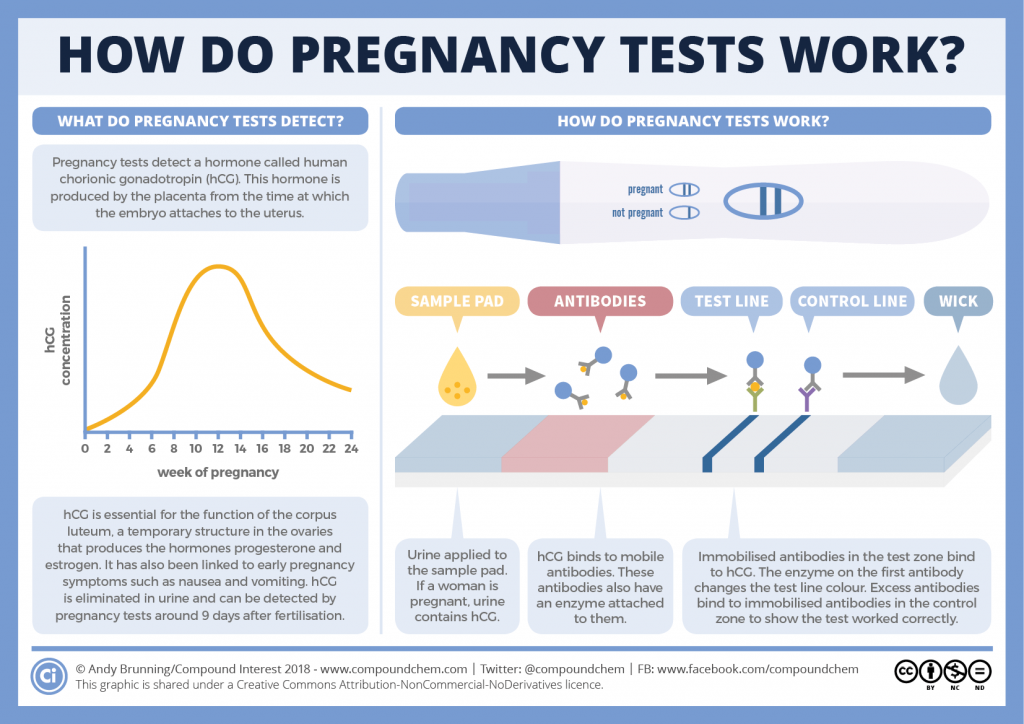 Due to the increased tone of the vagus nerve, constipation may occur.
Due to the increased tone of the vagus nerve, constipation may occur.
The most significant changes, however, occur in the genitals of pregnant women. These changes prepare the woman's reproductive system for childbirth and breastfeeding.
The uterus of a pregnant woman increases significantly in size. Its mass increases from 50 g - at the beginning of pregnancy to 1200 g - at the end of pregnancy. The volume of the uterine cavity by the end of pregnancy increases by more than 500 times! The blood supply to the uterus is greatly increased. In the walls of the uterus, the number of muscle fibers increases. The cervix is filled with thick mucus that clogs the cavity of the cervical canal. The fallopian tubes and ovaries also increase in size. In one of the ovaries, there is a "corpus luteum of pregnancy" - a place for the synthesis of hormones that support pregnancy. Walls vaginas will loosen and become more elastic. External genitalia (labia minor and major), also increase in size and become more elastic. The tissues of the perineum are loosened. In addition, there is an increase in mobility in the joints of the pelvis and a divergence of the pubic bones. The changes in the genital tract described above are of extremely important physiological significance for childbirth. Loosening the walls, increasing the mobility and elasticity of the genital tract increases their throughput and facilitates the movement of the fetus through them during childbirth.
Skin in the genital area and in the midline of the abdomen usually becomes darker in color. Sometimes "stretch marks" form on the skin of the lateral parts of the abdomen, which turn into whitish stripes after childbirth.
Mammary glands increase in size, become more elastic, tense. When pressing on the nipple, colostrum (first milk) is released.
Changes in the bone skeleton and muscular system .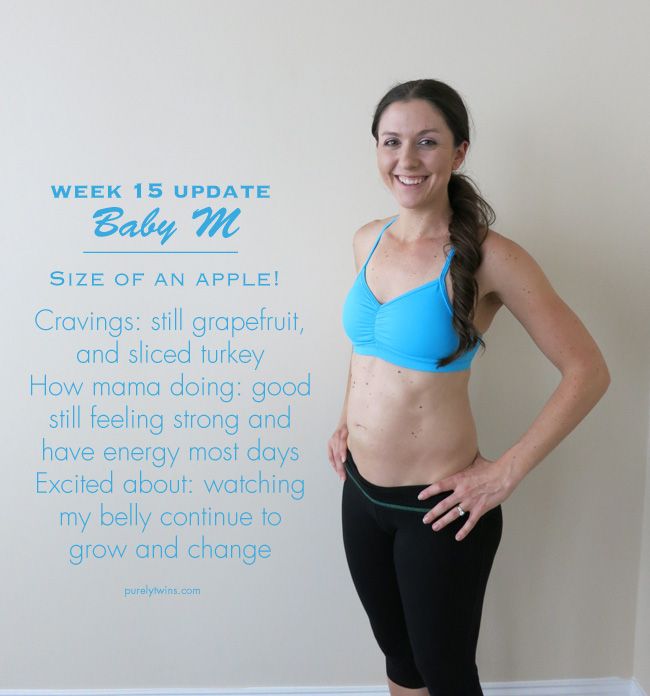 An increase in the concentration of the hormones relaxin and progesterone in the blood contributes to the leaching of calcium from the skeletal system. This helps to reduce the rigidity of the joints between the bones of the pelvis and increase the elasticity of the pelvic ring. Increasing the elasticity of the pelvis is of great importance in increasing the diameter of the internal bone ring in the first stage of labor and further reducing the resistance of the birth tract to fetal movement in the second stage of labor. Also, calcium, washed out of the mother's skeletal system, is used to build the skeleton of the fetus.
An increase in the concentration of the hormones relaxin and progesterone in the blood contributes to the leaching of calcium from the skeletal system. This helps to reduce the rigidity of the joints between the bones of the pelvis and increase the elasticity of the pelvic ring. Increasing the elasticity of the pelvis is of great importance in increasing the diameter of the internal bone ring in the first stage of labor and further reducing the resistance of the birth tract to fetal movement in the second stage of labor. Also, calcium, washed out of the mother's skeletal system, is used to build the skeleton of the fetus.
It should be noted that calcium compounds are washed out of all bones of the maternal skeleton (including the bones of the foot and spine). As shown earlier, a woman's weight increases during pregnancy by 10 -12 kg. This additional load against the background of a decrease in bone stiffness can cause foot deformity and the development of flat feet. A shift in the center of gravity of the body of a pregnant woman due to an increase in the weight of the uterus can lead to a change in the curvature of the spine and the appearance of pain in the back and pelvic bones. Therefore, for the prevention of flat feet, pregnant women are advised to wear comfortable shoes with low heels. It is advisable to use insoles that support the arch of the foot. For the prevention of back pain, special physical exercises are recommended that can unload the spine and sacrum, as well as wearing a comfortable bandage. Despite an increase in calcium loss by the bones of the skeleton of a pregnant woman and an increase in their elasticity, structure and bone density (as is the case with osteoporosis in older women).
Therefore, for the prevention of flat feet, pregnant women are advised to wear comfortable shoes with low heels. It is advisable to use insoles that support the arch of the foot. For the prevention of back pain, special physical exercises are recommended that can unload the spine and sacrum, as well as wearing a comfortable bandage. Despite an increase in calcium loss by the bones of the skeleton of a pregnant woman and an increase in their elasticity, structure and bone density (as is the case with osteoporosis in older women).
Changes in the nervous system . In the first months of pregnancy and at the end of it, there is a decrease in the excitability of the cerebral cortex, which reaches its greatest degree by the time of the onset of childbirth. By the same period, the excitability of the receptors of the pregnant uterus increases. At the beginning of pregnancy, there is an increase in the tone of the vagus nerve, in connection with which various phenomena often occur: changes in taste and smell, nausea, increased salivation, etc.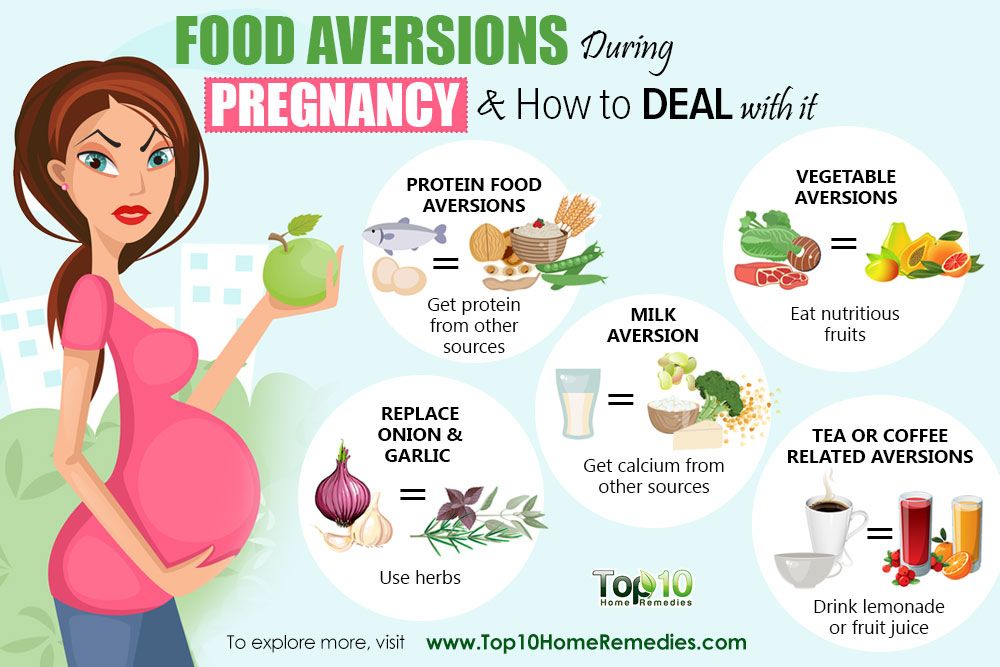
Active endocrine glands there are significant changes that contribute to the proper course of pregnancy and childbirth. Changes in body weight. By the end of pregnancy, a woman's weight increases by about 10-12 kg. This value is distributed as follows: fetus, placenta, membranes and amniotic fluid - approximately 4.0 - 4.5 kg, uterus and mammary glands -1.0 kg, blood - 1.5 kg, intercellular (tissue) fluid - 1 kg , an increase in the mass of adipose tissue of the mother's body - 4 kg.
Which signs of pregnancy can and cannot be trusted
You can listen to a short version of the article. If it's more convenient for you, turn on the podcast.
The most reliable signs of pregnancy are a positive blood test for hCG (human chorionic gonadotropin) and an ultrasound confirming the fact of conception. But sometimes you want to clarify the situation before going to the doctor or pharmacy. And this can really be done with high accuracy if you know which symptoms and in what period to pay attention.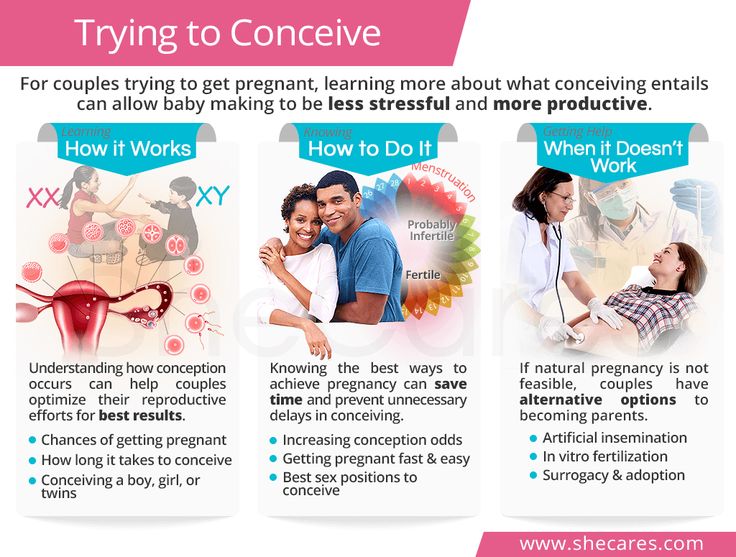
At what time do the first signs of pregnancy appear
Let's say right away: stories like “I realized that I was pregnant the very next morning after a night of love!” or “we slept together, and after three days morning sickness appeared and everything became obvious” - this is something like an urban legend. They have nothing to do with science.
The earliest signs of pregnancy appear at best 6 days after conception. And it's not for all women.
The reason is physiology. For a pregnancy to occur, the egg must meet with the sperm in the fallopian tube. This should happen within one or two days after ovulation - the maturation of the egg in the ovary. The fertilized egg then travels to the uterus to attach to it.
This process takes at least a few days - on average, from 6 to 10. Moreover, until the egg begins to fix itself in the endometrium lining the uterus, no changes in well-being can be noticed. Simply because they are not and cannot be.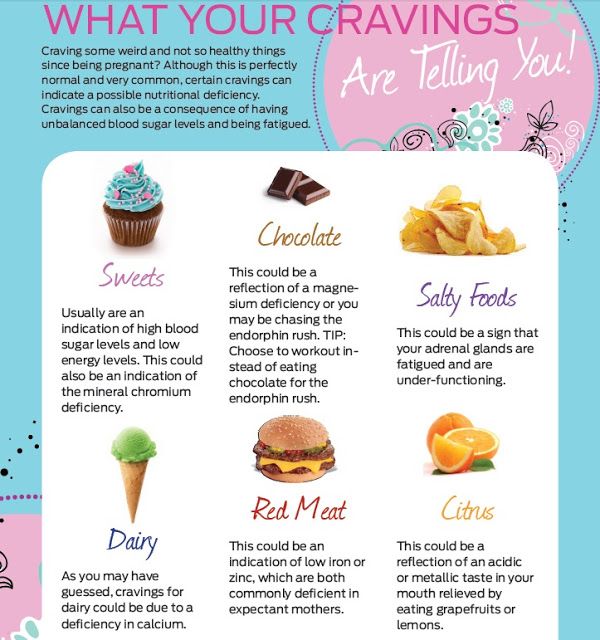
Actually, it is the implantation (introduction) of the embryo into the wall of the uterus that doctors consider the beginning of pregnancy. And this is logical. If a woman is taking oral contraceptives or has an intrauterine device, implantation will not occur. Accordingly, pregnancy will not occur and will not be able to make itself felt with any symptoms.
Conclusion: it is useless to look for signs of pregnancy earlier than 6 days after unprotected intercourse. But after this period, you can already begin to listen to yourself.
Which Early Signs of Pregnancy You Can Trust
There are traditional signs of pregnancy related to well-being: morning sickness with or without vomiting, painful breasts, changes in taste… And most of them are really worthy of attention.
Patricia A. Yost
OB/GYN, MD
Even if you feel a little different than usual, it's enough to suggest pregnancy.
But at the same time, these symptoms may have other causes. The real signs of pregnancy manifest themselves in strictly defined terms - this is due to the physiology, which we talked about above.
The real signs of pregnancy manifest themselves in strictly defined terms - this is due to the physiology, which we talked about above.
Therefore, if any change in your health seems suspicious to you, be sure to check how much time has passed since the alleged conception (or the first day of the last menstruation - the so-called obstetric period is counted from it).
Here are the most common and reliable symptoms that you are pregnant. Not all of them may be present specifically for you. But the more of them, the higher the likelihood that you are in a position.
1. Mild cramps in the lower abdomen
- When appears: 6-12 days after the expected conception (4-5 weeks from the beginning of the last menstruation).
When a fertilized egg implants in the wall of the uterus, some women experience mild cramping pain in the lower abdomen. It can last 1-2 days until the implantation process is completed. These sensations are also enhanced by increased blood flow to the uterus.
However, pain in the lower abdomen often occurs before menstruation, when the uterus is preparing to reject the thickened endometrium that is not needed this time. If you are not pregnant, after a couple of days these cramps will end with menstruation. But if the stomach hurt and stopped and menstruation did not come, you should be wary.
2. Spotting spotting
- When appears: 6-12 days after the expected conception, that is, on the days of the expected menstruation (4-5th week from the beginning of the last menstruation).
The process of implantation of an egg in the uterine wall can be accompanied not only by pain, but also by the so-called implantation bleeding. It is small and usually consists of small, light red or brownish discharge that stops within a couple of days.
Sometimes women overlook this symptom, thinking it is simply too weak menstruation. But menstruation cannot be "too weak", this is important. If the monthly bleeding of your usual volumes did not come after the spotting discharge, you are most likely pregnant.
3. Heavier, painful breasts
- When appears: 6-12 days after conception (4-5 weeks from the beginning of the last menstruation).
This is how the mammary glands react to hormonal changes in the body that begin after the implantation of the egg. This is a fairly common and characteristic symptom. According to a survey conducted by the American Pregnancy Association, for 17% of women, swollen breasts were the first sign of their new condition.
At the same time, breast enlargement and soreness can also be associated with approaching menstruation - the so-called premenstrual syndrome.
4. Unmotivated weakness, fatigue
- When appears: 6-12 days after the expected conception (4-5 weeks from the beginning of the last menstruation).
During and after the implantation of the egg, the body begins to produce progesterone, a hormone that helps keep the pregnancy going. A side effect of its increased level is sudden weakness, drowsiness, laziness, unwillingness to do anything. Later, when the female body adapts to the changed hormonal background, vigor will return. But at the very start of pregnancy, weakness is most noticeable.
Later, when the female body adapts to the changed hormonal background, vigor will return. But at the very start of pregnancy, weakness is most noticeable.
However, concluding that you are pregnant just because you suddenly want to crawl under the covers and do nothing is not worth it. Unmotivated fatigue can have dozens of different reasons - from banal overwork or ordinary SARS to much more dangerous diseases. Keep monitoring your condition.
5. Delayed periods
- When appears: about 14 days after conception (5-6 weeks from the beginning of the last menstruation) with a normal 28-day cycle.
Absence of menstruation is the key and most understandable symptom of pregnancy. Nearly 30% of women surveyed by the American Pregnancy Association said it was what made them take the test.
Nevertheless, the delay in menstruation is still not an unambiguous sign. It can be related to a host of other factors besides pregnancy: stress, weight loss, exercising too intensely, jet lag, certain medications.
6. Nausea (early toxicosis)
- When appears: about 14 days after conception (weeks 5-6 from last period).
They like to show this sign in films so that the viewer understands that the heroine is pregnant. But nausea appears no earlier than 2 weeks after conception. Scientists do not fully understand what this process is connected with, however, they suggest that this is the body's reaction to a changed hormonal background.
If you feel sick 3-7 days after sexual intercourse, it is more likely a problem with digestion, and not early toxicosis, because at this time the level of hormones does not change significantly.
7. Sensitivity to smells
- When appears: about 14 days after conception (5-6 weeks from the beginning of the last menstruation).
This symptom is caused by the same hormonal changes as nausea. Sometimes it appears even before the delay of menstruation. For example, you become unbearable smell from smoking colleagues.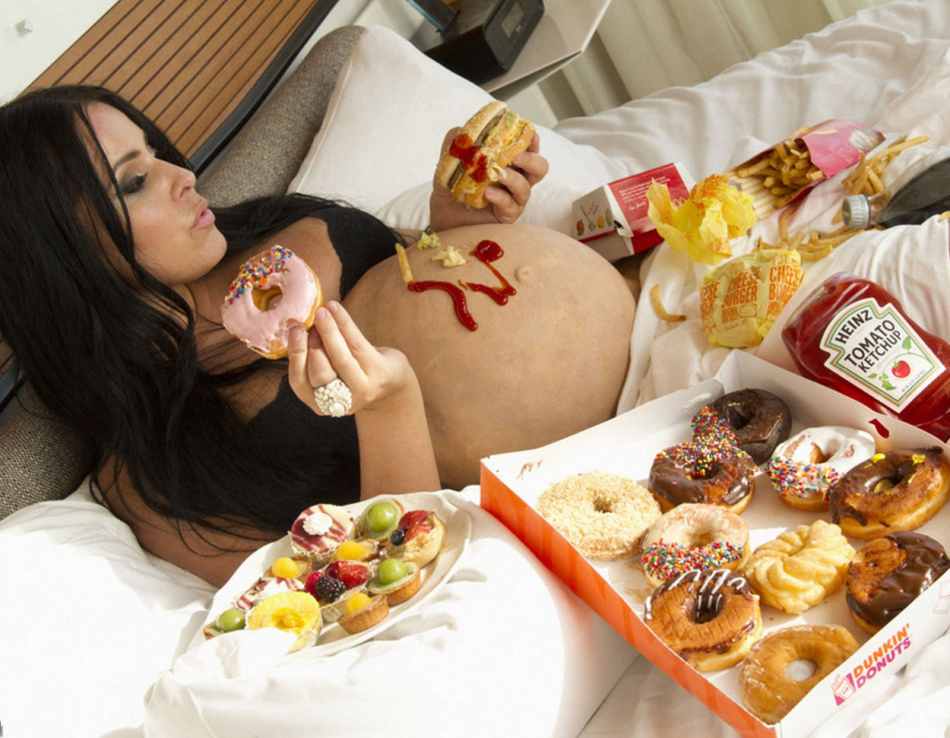 Or he begins to feel sick from the aroma of his favorite flowers, perfumes, dishes. This is a good reason to at least buy a pregnancy test.
Or he begins to feel sick from the aroma of his favorite flowers, perfumes, dishes. This is a good reason to at least buy a pregnancy test.
8. Bloating and constipation
- When appears: 6-12 days after conception (4-5 weeks from the beginning of the last menstruation).
Progesterone causes some muscle relaxation. This also applies to the muscles of the intestines. For this reason, the digestive process slows down, feces remain in the intestines longer. Which often causes a bursting sensation in the abdomen and constipation.
However, be aware that bloating and constipation can have dozens of other causes besides pregnancy. Therefore, it makes sense to consider this symptom only in combination with others.
9. Frequent urination
- When appears: 14-21 days after conception (5-6th week from the beginning of the last menstruation).
In the first weeks of pregnancy, the body actively produces the hormone hCG.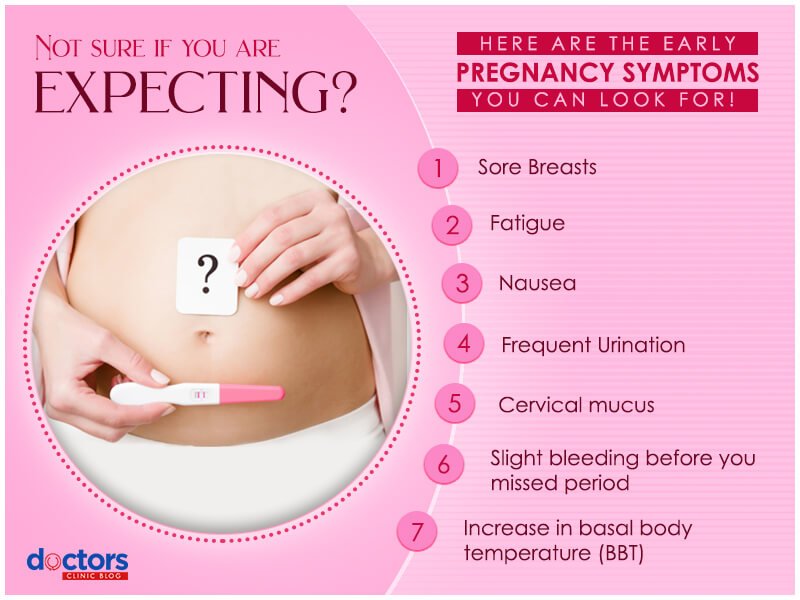 It increases blood flow to the pelvis, causing women to run to the toilet more often.
It increases blood flow to the pelvis, causing women to run to the toilet more often.
10. Increased basal temperature
- When appears: 14-21 days after conception (5-6th week from the beginning of the last menstruation).
Basal body temperature is measured in the mouth, rectum or vagina. It rises during ovulation - that is, during the period when the egg leaves the ovary into the fallopian tube. During pregnancy, basal temperature can also increase. But this happens not earlier than the sixth obstetric week.
11. Mood swings
- When appears: 7-10 days after the start of the delay of menstruation (from the 6th week from the beginning of the last menstruation).
Mood swings are caused by hormonal changes that a pregnant woman goes through. However, these changes increase gradually and become significant after a delay in menstruation.
If irritability, anxiety, tearfulness occur much earlier, most likely, it is not about pregnancy, but about banal PMS or stress.
12. Dizziness
- When appears: from 14-21 days after conception (from 5-6 weeks from the beginning of the last menstruation).
In the early stages of pregnancy, blood pressure often drops. This is due to the fact that the uterus requires more blood supply, the blood vessels dilate to provide the necessary blood flow, and the heart is not yet ready to pump the required volumes. The pressure decreases, this process is accompanied by dizziness.
However, dizziness can have other causes, including dangerous ones. If you begin to regularly “sickness”, consult a general practitioner or (if pregnancy has already been established) a gynecologist.
13. Accelerated pulse
- When appears: from the 8th to 10th week from the beginning of the last menstruation.
During pregnancy, the heart has to pump more blood to nourish the growing uterus and fetus. Therefore, it begins to work more actively. An increased heart rate is a common symptom in pregnant women, but it occurs already at those times when pregnancy is in most cases obvious.
An increased heart rate is a common symptom in pregnant women, but it occurs already at those times when pregnancy is in most cases obvious.
But again, keep in mind that an accelerated heartbeat (tachycardia) can also occur for other reasons - for example, with cardiovascular diseases. In any case, such conditions, if they began to manifest themselves regularly, require consultation with a general practitioner, gynecologist or cardiologist.
14. Pimples
- When appears: as a rule, not earlier than the 11th week from the beginning of the last menstruation.
Increased blood volume and increased hormone levels increase blood flow. This leads to the fact that the sebaceous glands of the body begin to work more actively than usual. Acne is often a side effect of this activity.
However, acne has many other causes, so do not rush to write off pimples for pregnancy. You may be able to quickly get rid of them if you make small changes in your lifestyle.
Signs of pregnancy to avoid
1. Diarrhea
Liquid, watery stools are also sometimes considered a sign of pregnancy. But it's not. On the contrary, you are more likely to become constipated in the early stages of pregnancy. Exclusively for hormonal reasons, which we wrote about above.
If you do develop diarrhea, it is likely caused by other factors: you may have eaten something wrong or caught a rotavirus infection.
2. Abrupt changes in taste preferences
There are legends about the love of pregnant women for peaches with herring or strawberries with soy sauce. But there is little convincing scientific evidence that women experience cravings for unusual flavor combinations during pregnancy.
Rather, we are talking about some changes in appetite associated with early toxicosis and sensitivity to smells. So, you may want to give up your usual coffee or fried foods - simply because their pungent smell will become disgusting.
However, there is still a craving for non-standard dishes.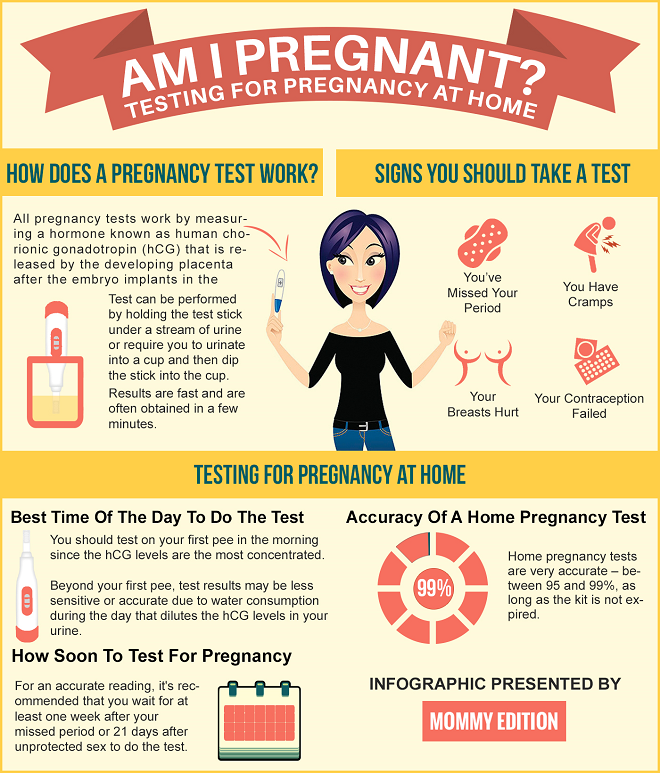 As a rule, it is associated with the fact that the body of a pregnant woman is deficient in certain essential vitamins and minerals. And he tries to cover their shortage by making the hostess want chalk (this may be a sign of iron deficiency) or, for example, pickles (deficiency of some salts) with raspberry jam (vitamin C deficiency). But such food perversions occur at solid terms of pregnancy, when it is already obvious.
As a rule, it is associated with the fact that the body of a pregnant woman is deficient in certain essential vitamins and minerals. And he tries to cover their shortage by making the hostess want chalk (this may be a sign of iron deficiency) or, for example, pickles (deficiency of some salts) with raspberry jam (vitamin C deficiency). But such food perversions occur at solid terms of pregnancy, when it is already obvious.
3. Dreams about fish and other signs
But these options have nothing to do with evidence-based medicine at all, no matter at what moment they appear. Also, do not try to detect pregnancy with the help of fortune-telling and waving a ring on a string.
How to establish pregnancy for sure
To begin with, listen to yourself, but don't go crazy. If you have a couple of reliable signs, invest in a quality pharmacy test. With its help, you can determine pregnancy as early as 10–12 days after fertilization.
If you want to be clear sooner, take a blood test for hCG (human chorionic gonadotropin).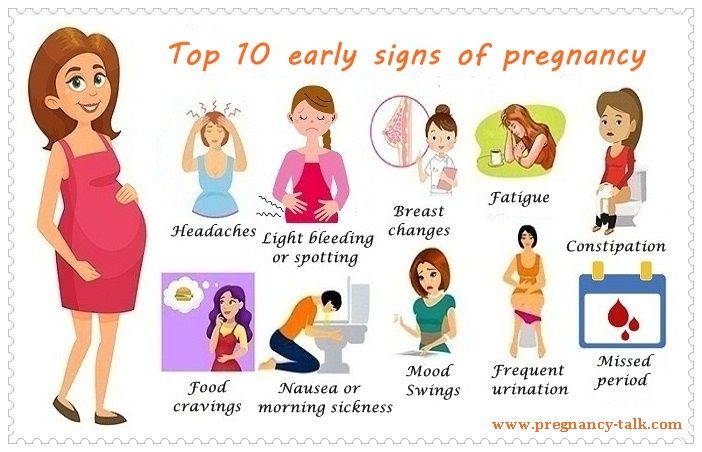 It can be done in any certified medical laboratory, and the results will be ready within a few hours.
It can be done in any certified medical laboratory, and the results will be ready within a few hours.
Lia Moss
Nurse Midwife at Northwestern University School of Medicine
An hCG blood test can detect pregnancy as early as 7 to 10 days after conception. But be aware: too early testing can give a false positive result.
If the test is positive, go to the gynecologist. The doctor will conduct an examination and prescribe a follow-up ultrasound to confirm your new position.
If the tests are negative, but the symptoms of pregnancy seem obvious to you, repeat the test in 1-2 days. And if necessary - again after the same period of time.
By the way, a negative result in this case will also be a result. If the signs of pregnancy persist or increase, and the test claims that there is no embryo in your body, this is a serious reason to see a gynecologist again. There are hormonal diseases that give symptoms similar to pregnancy. And it's important not to miss them.